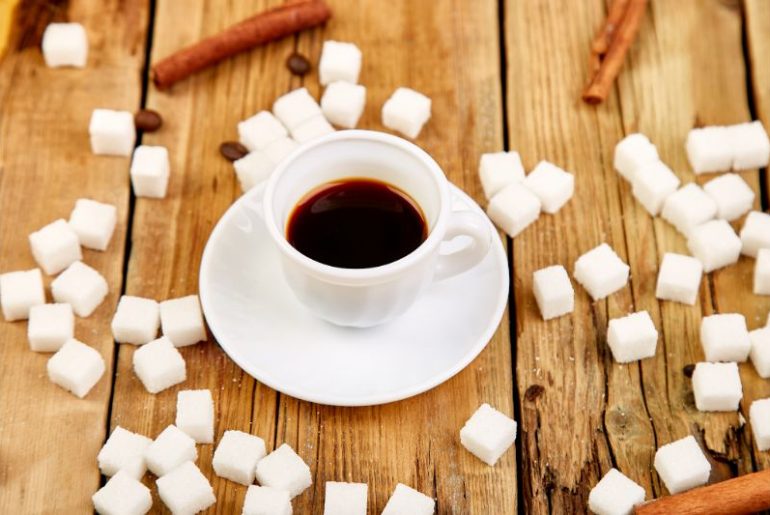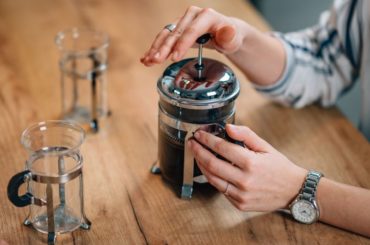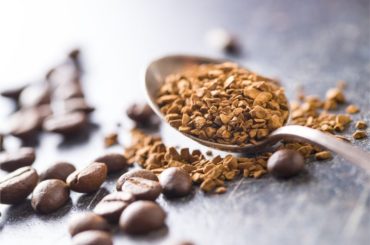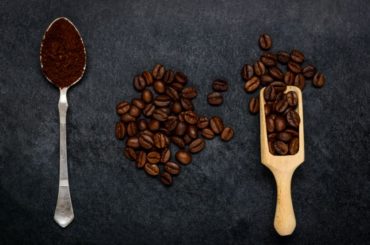If your espresso has been tasting bitter then you might be wondering why and what you can do about it.
This post will show you why your espresso tastes bitter and what you can do to get it to taste less bitter.
So, is espresso supposed to taste bitter? No, espresso is not supposed to taste bitter. If it tastes bitter then it is a sign that too much of the coffee has been extracted.
And, how do I get my espresso to taste less bitter? To reduce the bitterness take measures to reduce over-extracting. Do this by reducing how finely you grind the coffee, tamping more lightly, lowering the temperature of the machine or lowering the dose (weight of the grind in the portafilter).
There are actually a number of things that could be contributing the the bitter taste that you are experiencing. To get the best possible espresso for you it will be necessary for you to experiment by only changing one thing at a time while keeping other factors constant so that you can see which factors are causing the bitter taste.
Why your espresso tastes bitter
Below, I will mention a number of things that could cause your espresso to taste bitter, the things to do to make it taste less bitter and the things to consider.
Extraction time
The reason that your espresso tastes bitter is likely to be that you are over-extracting. This is where the hot water passes through the grind for too long and it causes a lot of the coffee to mix in with the water leading to a very strong and bitter taste.
Generally, it is recommended that your espresso take between 20-30 seconds to pull. If it takes longer than that then it would be more likely that it is being over-extracted.
If your espresso is coming out more quickly than that then it would actually be more likely that you are under-extracting. This is where the water passes through the coffee too quickly and it doesn’t pick up enough of the oil from the coffee as it passes through it.
Under-extracted coffee will normally have more of a sour taste than a bitter taste. If you think that you might be under-extracting the espresso then read this blog post where I talk about how to avoid under-extracting the espresso.
In order to avoid over-extracting the espresso, it will be necessary for you to take measures to reduce the time it takes for the water to pass through the coffee.
The main way to do this will be to grind the coffee less so that it is more coarse and less fine. If the coffee is too fine then it will mean that it will be more difficult for the water to pass through it which will cause it to extract more coffee than you want.
Another way to avoid over-extracting would be too tamp softer and to make sure to distribute grounds evenly before tamping (flattening the grounds in the portafilter).
If the grounds are not distributed evenly then it will mean that certain parts could be
The dose (weight of the espresso in the portafilter) of the espresso could also have an impact. If the dose is too large then it could cause the water to take too long to pass through it causing a bitter taste. To rectify this you could try reducing the dose.
Below, is a video on why your espresso is bitter and what to do about it.
Grind
As mentioned above the type of grind that you use will have an impact on the taste of the espresso.
If the grind is too fine then it will lead to a more bitter espresso while if it is too coarse then it will lead to a more sour espresso.
Since your espresso tastes bitter it would likely be a good idea to grind the coffee to be less fine.
Single sourced beans can cause a more bitter taste
The source of the beans can have a large impact on the way that they taste.
Generally, coffee blends, where the beans have been sourced from multiple origins, are more popular in espresso. However, in recent years, it has become more popular to use beans from a single origin.
Beans that have come from a single origin will normally have a much more strong taste to them and this could be why your espresso is tasting sour.
If you have been using beans from a single source then consider using a coffee blend for the espresso instead. This is because coffee blends will normally have a more balanced taste.
A high temperature could cause it to taste bitter
The reason that your espresso tastes bitter could be that you have been pulling at a temperature that is too high.
If the temperature of the water is too high then it will mean that more of the coffee will dissolve into the water which will cause a more bitter and possible burnt taste.
Generally, it is recommended that the espresso get pulled at between 195 – 205 degrees Fahrenheit.
Dose
The dose being used could also cause the espresso to taste more bitter.
If the dose (amount of coffee in the portafilter) is too high then it will mean that more coffee will be picked up by the water as it passes through it. This will often lead to the espresso having a bitter taste.
Generally, a double shot espresso should have between a 14-16 grams dose. If your dose is above that then consider lowering it.
Tamping
The way that you are tamping could also be contributing to the bitter taste.
If you are tamping too hard then it will mean that the grind will be too dense in the portafilter and it will result in the water taking too long to pass through it. This will cause a bitter taste since too much coffee will have dissolved into the water.
Below, is a video on how to tamp effectively.
A dark roast could lead to a more bitter taste
The type of roast could be what is causing the bitter taste.
Dark roasts will tend to have a more bitter flavor to them. If you have been using a dark roast then consider using a lighter roast and seeing what you think of it.
On the other hand, light roasts will normally cause more of a sour taste. This is because the beans will remain more acidic as the roasting process doesn’t last long enough to reduce the level of acidity.
Freshness of the beans
The freshness of the beans could also be causing the bitter taste.
Generally, it is recommended to use the beans within 3 weeks of having been roasted. This is because, as time passes, they will begin to oxidize and to lose their oils and thus their flavor.
However, it is also the case that you can use the beans too quickly after having been roasted. If you use the beans within two to three days of having been roasted then it will mean that they will still contain a lot of CO2. Using the beans while they still contain a lot of CO2 can cause a more bitter taste.
To avoid this try to wait for three days before using the beans after they have been roasted.
Experiment
When trying to get your espresso to taste less bitter and to taste the way that you want it to it will be necessary for you to experiment with it a lot.
When experimenting, I would recommend that you only change one factor at a time while not changing anything else so that you can get a better idea of how it impacts on the taste.
I would also recommend that you start by changing the things that will have a larger impact on the taste first and then change other things later. So, I would start by adjusting how fine the grind is, then the temperature and the dose, the type of beans and their type of roast and then change the other factors mentioned above.






